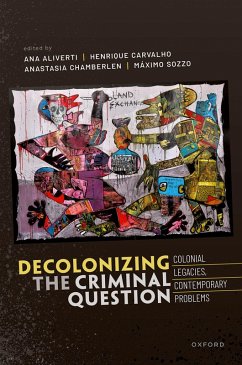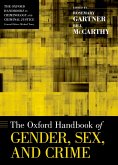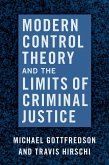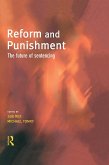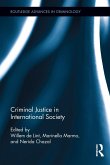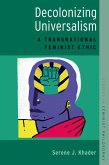Within the discipline of criminology and criminal justice, relatively little attention has been paid to the relationship between criminal law, punishment, and imperialism, or the contours and exercise of penal power in the Global South. Decolonizing the Criminal Question is the first work of its kind to comprehensively place colonialism and its legacies at the heart of criminological enquiry. By examining the reverberations of colonial history and logics in the operation of penal power, this volume explores the uneasy relationship between criminal justice and colonialism, bringing relevance of these legacies in criminological enquiries to the forefront of the discussion. It invites and pursues a better understanding of the links between imperialism and colonialism on the one hand, and nationalism and globalization on the other, by exposing the imprints of these links on processes of marginalization, racialization, and exclusion that are central to contemporary criminal justice practices. Covering a range of jurisdictions and themes, Decolonizing the Criminal Question details how colonial and imperial domination relied on the internalization of hierarchies and identities - for example, racial, geographical, and geopolitical - of both the colonized and the colonizer, and shaped their subjectivity through imageries, discourses, and technologies. Offering innovative, conceptual, and methodological approaches to the study of the criminal question, this work is an essential read for scholars not only focused on criminology and criminal justice, but also for scholars in law, anthropology, sociology, politics, history, and a range of other disciplines in the humanities and social sciences. Decolonizing the Criminal Question is an open access title available under the terms of a CC BY-NC-ND 4.0 International licence. It is free to download from OUP and selected open access locations.
Dieser Download kann aus rechtlichen Gründen nur mit Rechnungsadresse in A, B, BG, CY, CZ, D, DK, EW, E, FIN, F, GR, HR, H, IRL, I, LT, L, LR, M, NL, PL, P, R, S, SLO, SK ausgeliefert werden.

